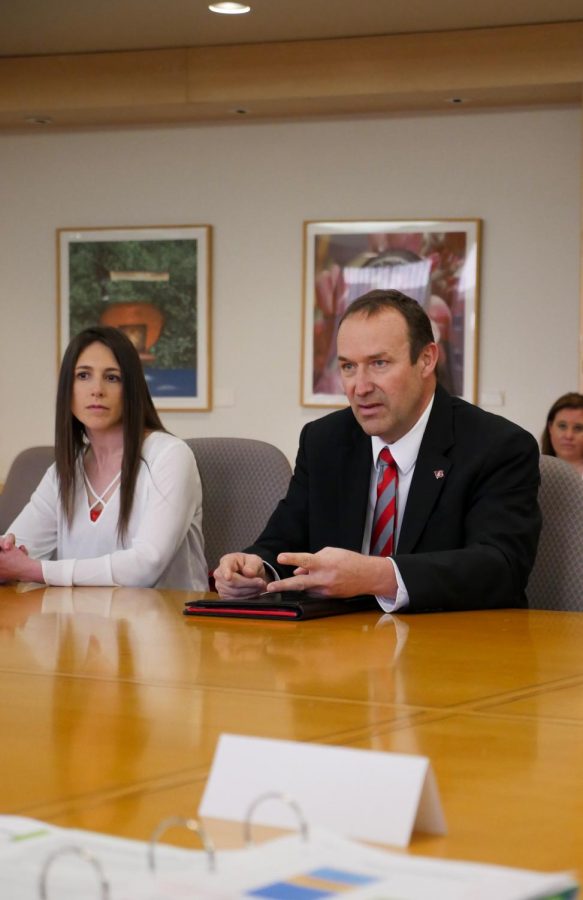Athletic department reports $1.9 million increase in deficit
WSU lost $3.3 million in revenue; partially offset by $1.4 million expense reduction
BARRY BRIGGS | DAILY EVERGREEN FILE
Matt Kleffner, CFO of the athletic department, said the $3.3 million loss in revenue was due to loss of proceeds from baseball games, concessions and reductions in contributions.
May 14, 2020
With spring sports being cancelled due to COVID-19, the WSU Athletic Department has reported a $1.9 million increase to their deficit this year.
Matt Kleffner, CFO of the athletic department, said the deficit increase was caused by a lack of revenue from the NCAA. WSU lost about $3.3 million in revenue including proceeds from baseball games, concessions and reductions in contributions. The lack of revenue was partially offset by a $1.4 million reduction in expenses for game operations, team travel, recruiting, and other non-essential travel.
The biggest hits to the department’s finances were the loss of revenue from the NCAA and the PAC-12 due to sports cancellations.
This year, the NCAA and PAC-12 were unable to distribute any revenue to universities from March Madness and television broadcasts.
Phil Weiler, vice president for Marketing and Communications, said the deficit is an issue for WSU’s five-year plan to alleviate current deficits by 2023. The original plan was to increase overall revenue by 27 percent.
“The hill has gotten a little bit taller and steeper,” he said. “They’ve been climbing uphill for a long time and they’ve been making good progress, but this is a setback.”
Weiler said the department does not have a problem with low attendance for games, the problem for revenue is the field’s capacity.
“Stanford has a real issue with attendance. We don’t have that problem,” he said. “The problem is we don’t have the capacity to be able to capture the revenues we need. So a lot of work has been done on improving in-game experience for fans.”
The department plans to build a financial cushion after the department’s budget breaks even so they have reserve funds for any unexpected expenses in the future.
Kleffner said the department is evaluating all revenue, expenses and COVID-19 effects on sports due to the changing nature of the current financial environment.
The department’s major concern for the fall sports season is how COVID-19 will affect it, rather than how the deficit will affect it.
Weiler said fall sports could be canceled even if face-to-face instruction returns to WSU for fall. This could cause another increase in the deficit.
“Not all schools are there yet, so there’s all sorts of scenarios for what the fall season is going to look like,” he said. “If the seasons are shortened and football is impacted, it’s going to have a significant impact on revenue.”









